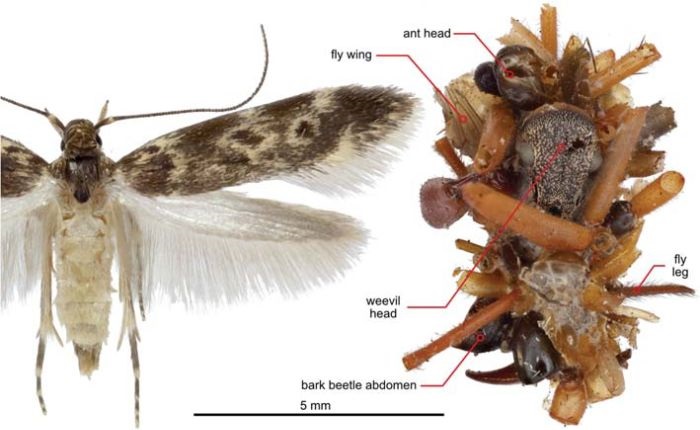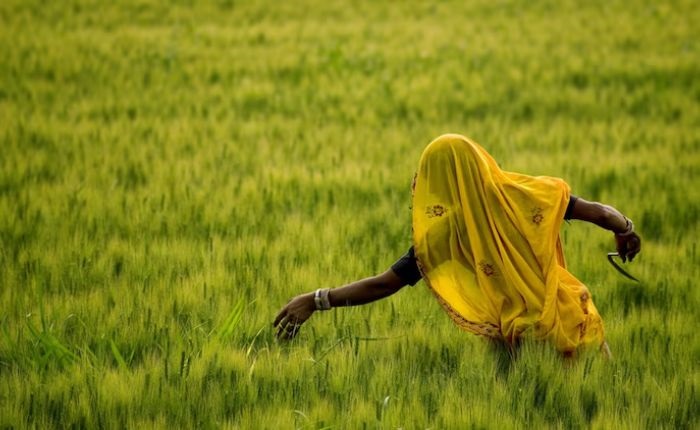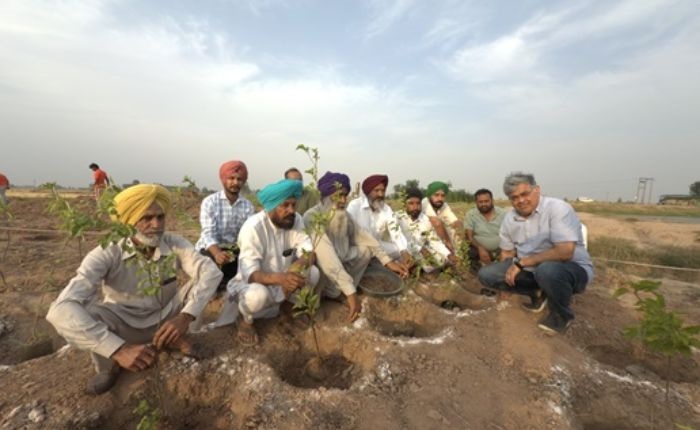Carnivorous ‘Bone Collector’ caterpillars wear corpses as Camouflage
A newly discovered carnivorous caterpillar in Oahu, Hawaii, nicknamed the “bone collector,” uses a macabre form of camouflage- adorning its silk case with the body parts of insects scavenged from spider webs. These remains, including ant heads and beetle limbs, help it blend in and evade predators like spiders. Found only in a tiny rainforest area, this eerie and ancient species highlights the fragility of island ecosystems and biodiversity.
Read more at Scientific American
What India’s suspension of the Indus Waters Treaty means for Pakistan – and for Itself
India’s suspension of the Indus Waters Treaty following the deadly Pahalgam attack marks a significant escalation in India-Pakistan tensions. While the immediate impact on water flow is limited due to infrastructure constraints, the move threatens Pakistan’s agriculture and hydropower sectors, heavily reliant on the Indus system. Pakistan has condemned the suspension as an “act of war,” heightening fears of broader conflict between the nuclear-armed neighbors.
Read more at The Indian Express
Type 5 diabetes recognised as distinct form of disease: why is this significant?
Type 5 diabetes, now officially recognized, mostly affects undernourished teens and young adults in poorer countries. Unlike other types, it’s linked to malnutrition and low insulin levels, making it hard to treat with standard diabetes care. Experts say this recognition is a big step- it means better diagnosis, awareness, and support for millions who were often misdiagnosed or untreated. It also shows how poverty and poor nutrition can shape serious health issues, making global health support even more important. It highlights how health and nutrition are deeply connected.
Read more at The Indian Express
Could increasing heat cause mental disorders?
Rising temperatures are not just a physical health risk- they are affecting our minds too. Studies show that extreme heat can increase anxiety, depression, aggression, and even suicide risk. It affects sleep, concentration, and brain chemistry, making it harder for students and vulnerable groups to cope. As global temperatures climb, experts stress the need to include mental health support in climate change response plans.
Read more at Firstpost
To fight climate change, India must tap into its indigenous roots
India’s tribal communities are facing severe challenges due to climate change, including erratic rainfall, shrinking forests, and soil degradation, which threaten their traditional ways of life. While they have historically relied on indigenous knowledge to adapt, the rapid pace of climate change now outstrips these methods. Locally-led adaptation (LLA) initiatives, such as Nagaland’s Zabo system and Gujarat’s Bhungroo method, demonstrate promise. Scaling such models through programs like PM JANMAN, with active community involvement, could enhance climate resilience.
Read more at Firstpost
Kirthiga Reddy: Meta India Ex-Head announces AI platform for women
On April 21, 2025, Kirthiga Reddy, former Meta India head and CEO of Verix, officially launched ‘AI Kiran’- a national initiative to empower Indian women in artificial intelligence. Developed in collaboration with the Office of the Principal Scientific Adviser to the Government of India and INK Women, AI Kiran offers mentorship, funding access, and blockchain-verified recognition. Hosted on the Manthan Platform, the program aims to reach one million women over the next year, fostering leadership across sectors like healthcare, education, and sustainability.
Read more at she the people
Earth Day 2025: How ‘The Billion Tree Project’ is making Punjab greener
On Earth Day 2025, the Roundglass Foundation’s ‘Billion Tree Project’ marked a significant milestone by planting over 3 million native trees across 980 acres in Punjab. This initiative aims to combat climate change, restore biodiversity, and recharge groundwater, while also creating local employment through community involvement. With a remarkable 90% survival rate, these plantations are transforming barren lands into thriving ecosystems.
Read more at The CSR Journal
Why ‘please’ and ‘thank you’ to ChatGPT costs ‘tens of millions of dollars’
Responding to polite words like “please” and “thank you” may seem simple, but it actually adds to ChatGPT’s massive computing costs. OpenAI spends up to $700,000 per day to keep the chatbot running. Each word uses processing power, and polite conversations increase that load. Still, OpenAI keeps these replies to make the AI feel friendly and more natural for users, especially students and everyday users.
Read more at The Indian Express
Trump names 8 ways countries are ‘cheating’ US on trade: Here’s the full list
On April 20, 2025, President Donald Trump outlined eight non-tariff practices he claims countries use to unfairly disadvantage the U.S. in trade. These include currency manipulation, VATs acting as export subsidies, dumping goods below cost, government export subsidies, restrictive agricultural and technical standards, intellectual property theft, and transshipping to evade tariffs. Trump warned of potential trade actions if these issues aren’t addressed.
Read more at WION
NASA’s oldest Astronaut returns to Earth on 70th birthday after seven months in space
NASA astronaut Don Pettit returned to Earth on his 70th birthday after spending seven months on the International Space Station. He landed safely with two Russian cosmonauts in Kazakhstan after 220 days in space. During the mission, the crew completed over 3,500 orbits and worked on science projects like water purification and plant growth. Pettit has now spent nearly 590 days in space across four missions.
Read more at NEWS X










